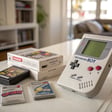Ever found an odd-looking penny in your change and wondered if it might be worth something? You're not alone.
Hidden Valuable Coins: What Might Be Lurking in Your Pocket Change
Most of us handle coins every day without giving them a second thought. But sometimes, that ordinary-looking nickel or quarter could be worth far more than its face value. Collectors and numismatists (coin specialists) know that certain coins can fetch hundreds, thousands, or even millions of dollars due to their rarity, historical significance, or minting errors.
Last Tuesday, I was sorting through my grandfather's old jar of coins and found a 1943 copper penny—potentially worth thousands if authentic. While most 1943 pennies were made of steel due to copper shortages during WWII, a few copper versions slipped through, creating one of the most sought-after error coins in American numismatics.
"People often inherit coin collections without realizing their value," says James Bucki, a coin expert at The Spruce Crafts. "A professional appraisal can reveal surprising treasures hiding in plain sight."
Rare US Coins Worth Looking For
If you're wondering which coins to keep an eye out for, here's a non-exhaustive list of some valuable American coins that might be hiding in your home:
1. Pre-1965 Silver Coins
Quarters, dimes, and half dollars minted before 1965 contain 90% silver, giving them inherent value beyond their denomination. Even in poor condition, these coins are worth several times their face value due to silver content alone.
2. Wheat Pennies (1909-1958)
While most wheat pennies are worth only a few cents, certain dates and mint marks can be quite valuable. The 1909-S VDB, 1914-D, and 1931-S are particularly prized, with the 1909-S VDB potentially worth over $1,000 in good condition.
3. Buffalo Nickels (1913-1938)
These iconic American coins featuring a Native American on the obverse and a buffalo on the reverse can be worth significant money—especially the 1913-S Type 2, 1916/16 doubled die, and the 1918/7-D overdate.
4. Mercury Dimes (1916-1945)
The 1916-D and certain other dates can be quite valuable. Even common dates have silver value.
How Can I Tell If My Coin Collection Worth Something?
Determining your coin collection's value requires attention to several factors:
Mintage Matters
One quick indicator of a coin's potential value is its mintage number—how many were produced. According to NSA Storage's blog on identifying valuable coins, "One quick way to determine if a coin is rare or valuable is to look at the mintage." Lower mintage numbers generally mean higher value, though condition remains crucial.
Condition Is King
A coin's grade (condition) dramatically affects its value. Professional grading uses a 70-point scale, with 70 being perfect. The difference between grades can mean thousands of dollars in value.
I once thought my 1932 quarter was worth hundreds until I learned my heavily worn specimen was common—a harsh but educational lesson in coin collecting.
Mint Marks Make a Difference
Small letters on coins indicate where they were minted. Some mint marks (like "S" for San Francisco or "CC" for Carson City) can significantly increase a coin's value for certain years.
Old Coin Values: What Determines Worth?
Several factors determine a rare coin's value:
- Rarity - How many examples exist
- Condition - How well-preserved the coin remains
- Historical significance - The coin's place in numismatic history
- Demand - Collector interest in that particular coin
- Metal content - Intrinsic value of silver, gold, etc.
According to Bankrate's article on valuable coins, some of the world's most valuable specimens have sold for millions. The 1794 Flowing Hair Silver Dollar—believed to be the first silver dollar minted by the U.S.—sold for over $10 million in 2013.
Coin Appraisal Tips: Getting Started
If you think you might have valuable coins, here's how to proceed:
Research Before Selling
A Reddit user who inherited a collection advised: "Some of the coins are in spectacular condition to my eye, but I don't have experience to know what's good or bad condition in coins." This honest assessment highlights the importance of research before making decisions.
Use Technology
Apps like CoinSnap can help identify mysterious coins in your collection. With "300,000+ coin types covered and 99% recognition accuracy," such tools provide a starting point for research, though professional appraisal remains recommended for potentially valuable specimens.
Handle With Care
Never clean coins you suspect might be valuable! Improper cleaning can significantly reduce a coin's value. Handle coins by their edges, and consider using cotton gloves.
Find Valuable Coins: Where to Look
Beyond checking your change and piggy banks, consider these hunting grounds:
- Estate sales and auctions
- Coin dealer "junk boxes" of unsorted coins
- Bank rolls of coins
- Flea markets and garage sales
- Family heirlooms and inheritances
I once found a valuable 1950-D Jefferson nickel worth about $20 in a roll of nickels from the bank—proving that treasures still circulate!
Rare Coin Finder: Resources for Identification
Several resources can help you identify potential treasures:
- Reference books: "A Guide Book of United States Coins" (the "Red Book") is considered essential
- Online databases: PCGS CoinFacts and NGC Coin Explorer provide comprehensive information
- Coin clubs: Local numismatic societies offer expertise and community
- Professional dealers: Reputable coin shops can provide free identifications
What Should I Do If I Find Something Valuable?
If you believe you've found a valuable coin, consider these steps:
- Document it with clear photos
- Research preliminary values online
- Consider professional grading for potentially valuable specimens
- Get multiple appraisals before selling
- Consider auction houses for truly rare specimens
Coin Collection Guide: Building Knowledge
The most successful collectors build knowledge before investing heavily. Join online forums like r/coins on Reddit, where collectors regularly help identify mysterious coins and share knowledge.
As one Reddit user advised someone who inherited a collection: "Take your time. There's no rush to sell anything, and the more you learn, the better decisions you'll make."
Disclaimer: This information is provided for educational purposes only and should not be considered financial advice. Coin values fluctuate based on market conditions, and professional appraisal is recommended before making investment decisions regarding potentially valuable coins.
Tags

About Elliot Drake the Author
Elliot Drake has over a decade of experience in financial literacy education and is a renowned authority on personal-finance-journals. His insightful approach to budgeting and goal-setting through journaling has helped thousands achieve financial clarity and freedom.
Recommended Articles
Mechanics Recommend These 6 Cars That Rarely Need Repairs
Discover the top 6 recommended cars that rarely need repairs, ensuring reliability and peace of mind for every driver.
Ease Morning Stiffness With This 60-Second Movement Trick
Ease morning stiffness with a simple 60-second movement trick to improve flexibility and start your day right. Perfect for all ages.
8 Gadgets From the 90s and 2000s Worth a Fortune Today
Explore 8 nostalgic gadgets from the 90s and 2000s that are now surprisingly valuable collectibles worth digging out of your attic.
First Look at the 2026 Hyundai H1 Family Van
Explore the innovative 2026 Hyundai H1 Family Van, offering spacious design, advanced technology, and a commitment to sustainability for modern families.
2026 Nissan Navara: Rugged Power Meets New Tech
Discover the 2026 Nissan Navara, blending rugged off-road capability with advanced technology and modern design for versatile performance.




